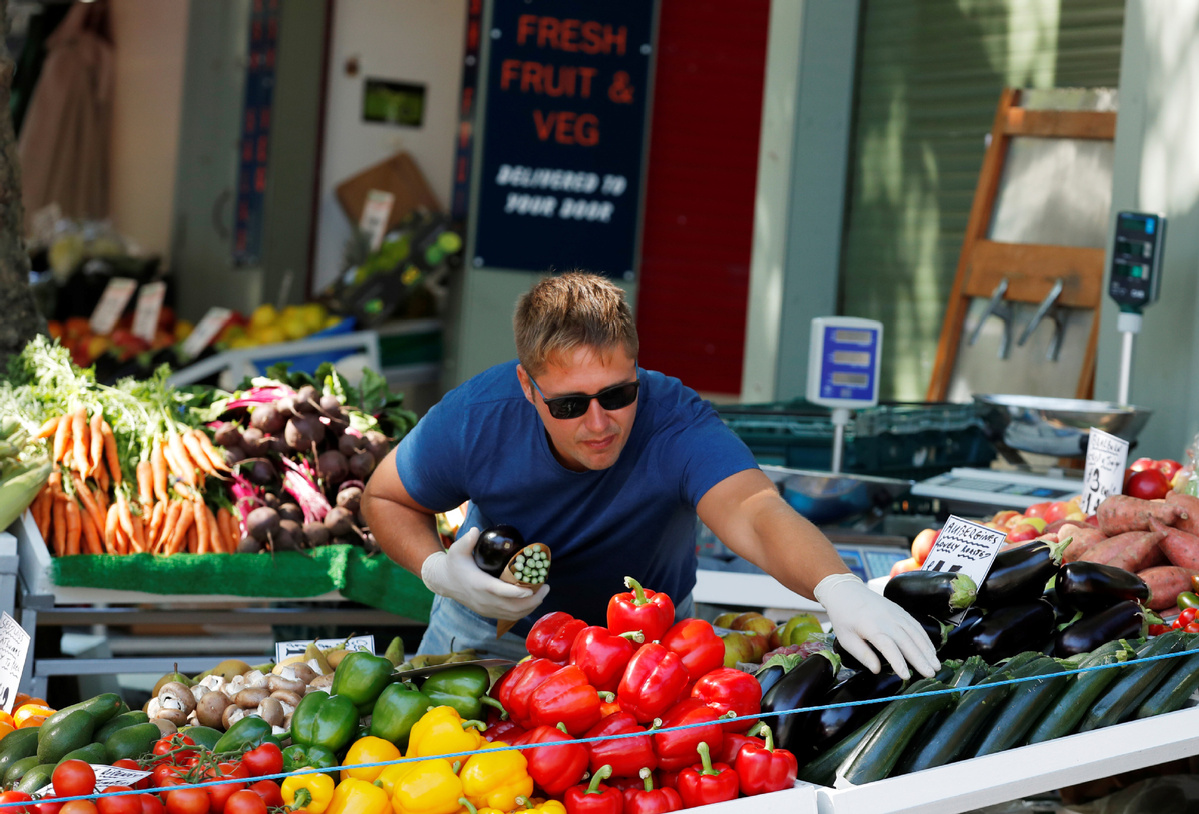
A stall worker wearing gloves at Norwich Market, following the outbreak of the coronavirus disease (COVID-19), Norwich, Britain, June 1, 2020. (Photo: China Daily)
The economic downturn caused by the novel coronavirus pandemic is hitting United Kingdom households supported by single parents and people from black, Asian, and minority ethnic backgrounds the hardest, according to a new study by the Institute for Social and Economic Research at the University of Essex.
After analyzing the answers of more than 17,000 respondents to the ongoing Understanding Society survey, the researchers built up a picture of people's financial situation during the last week of April, and back in January.
They concluded that all types of UK household had been made poorer by the recession, but that the poorest homes had been impacted the most.
Workers from black, Asian, and minority ethnic backgrounds-a grouping known in the UK as BAME-and single parents were more likely to have lost their jobs, had reductions in their earnings, or to have not been helped by the government's furlough program than their peers.
The research showed 31 percent of BAME workers who had a reduction in their working hours had been placed on the government furlough program through which they got to stay at home and receive 80 percent of their salaries, and 20 percent had lost their jobs.
That compared to 44 percent of households supported by wage earners who were not from the BAME demographic being placed on the furlough program; and 7 percent of them losing their jobs.
Joe Richardson, of the registered charity Gingerbread, which supports single parents in England and Wales, told The Guardian newspaper the figures were "particularly striking".
"We need to urgently understand the source of the difference," he said. "For example, to what extent it can be explained by differences in the type of jobs done by different groups."
The survey found BAME household earnings had fallen, on average, from 441 pounds ($560) a week to 404 pounds while non-BAME households had seen incomes fall from 547 pounds to an average of 503 pounds.
Many low-earners were behind on their bills and the demographic was five times as likely to experience hunger as top earners.
Metro newspaper quoted Thomas Crossley, associate director for scientific content at Understanding Society, as saying: "These new data shows us that the economic shocks caused by the pandemic have affected people unevenly across the UK."
An unnamed government spokesman said: "Our job retention and self-employment schemes are helping millions through the crisis. We've injected 6.5 billion pounds into the welfare safety net and have introduced mortgage holidays and tax deferrals."
The spokesperson added that, before the outbreak began, a record number of people from BAME backgrounds were working in the UK, and that the government had attempted to "mitigate the economic impact of the virus".


